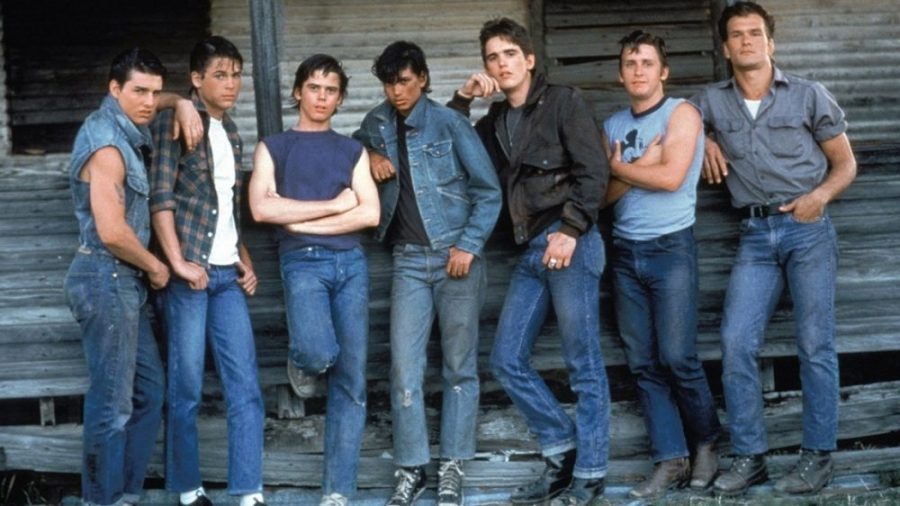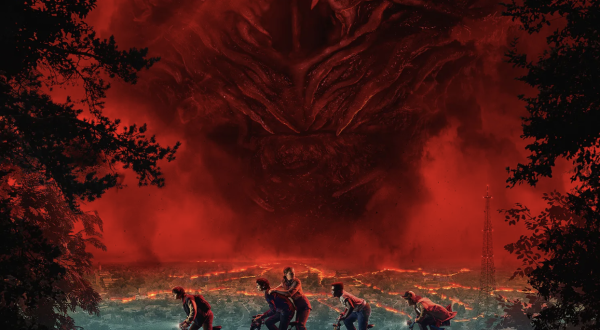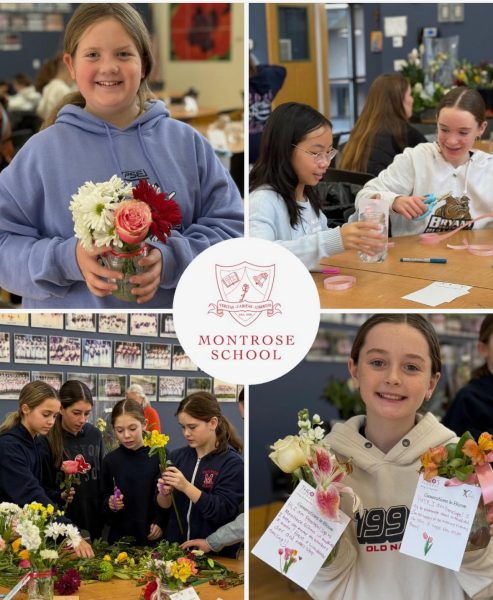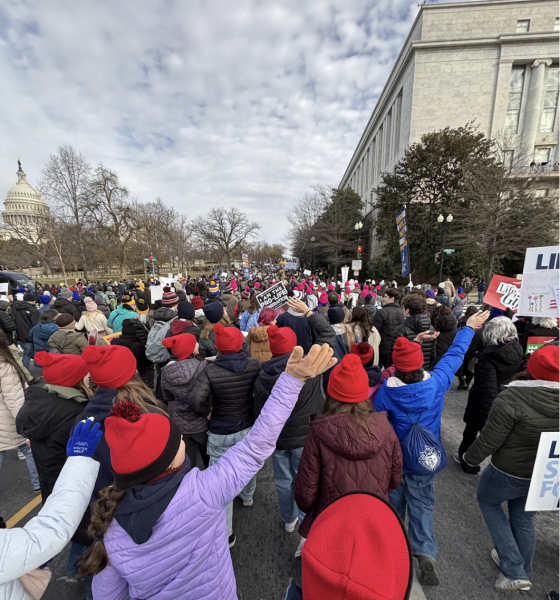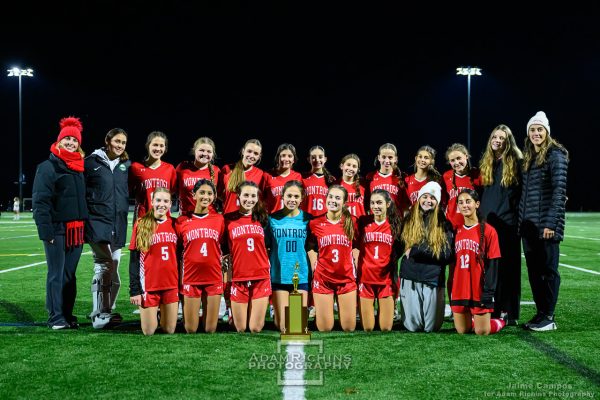The Outsiders: Discovering Friendship & Camaraderie Across Societal Divides
Spoiler Alert: If you haven’t read The Outsiders yet, beware! We recommend that you read the book before reading this article.
Throughout the course of life, it is sometimes difficult and challenging to look past a person’s label. The Outsiders by S.E Hinton, a novel later adapted into a film, is set in the 1950s in Tulsa, Oklahoma with a deep social divide. Townspeople (especially the teenagers) struggle with this divide, and they split themselves into two groups: “Socials” and “Greasers.” The novel and film follow the journey of a fourteen year old boy named Ponyboy (yes, that is his real name) and his friends, who are mostly all Greasers. However, Ponyboy and his best friend Johnny are different from the rest of their social group. They wish that the divide could deteriorate, allowing everyone to see each other as they truly are. Ponyboy’s story can help the audience realize that we should not base a person’s reputation upon their labels.
Although the terms “Greaser” and “Soc” are not used in our society, this type of separation does exist in various cities like Tulsa today. In case you are unfamiliar with the terms, a Greaser is a person on the lower end of the social ladder, who might be homeless, have a lower class job, and is especially known for causing trouble. On the other hand, a Social is a person who is at the higher end of the social ladder. They have higher paying jobs, access to luxury items, higher education, and a comfortable financial situation. Both of these titles were used in The Outsiders to describe and label both sides and demonstrate the social groups’ tensions.
In Ponyboy’s world, Greasers and Socials are like fire and ice. This divide is so intense that it leads to occasional violence, and even death. Throughout Ponyboy’s encounters and experiences, lives are lost and violence grows due to the social separation. Both Social lives and Greaser lives are hurt by the divides, and the plot climaxes with the death of Johnny and a Social.
The first death along Ponyboy’s journey in The Outsiders takes place on a windy and chilly night. Johnny and Ponyboy are sleeping in the park due to unfit home situations when Socials arrive, clearly carrying malicious intent. Next, the Socials try to murder Ponyboy by drowning him in a nearby fountain. With Ponyboy’s life on the line, Johnny pulls out his knife and kills one of the Socials. As Johnny realizes what he has done he feels remorse for the life lost, even though he was acting in defense. Ponyboy becomes sick from nearly drowning, and the two friends are left in a state of shock. Despite having past conflict with the Socials, both Greasers feel terribly guilty about the events that had taken place. By experiencing this event, they now realize that a life is a life, no matter what a person’s label is.
Although Johnny acted in self defense, Johnny and Ponyboy fear the consequences of their actions. They leave town to hide in an abandoned church with help from their close friend, Dally. After about a week, Dally comes to check in on them and takes them out for lunch. By the time they get back, a terrible fire is raging inside the church. Enclosed in the burning building are children that traveled inside on a field trip. Ponyboy and Johnny rush to the scene and Dally later follows. They run head on into the burning building and rummage through the rubble and smoke to rescue all of the children. The children evacuate, but Johnny does not make it in time. The church quickly collapses, leaving Johnny lying amidst the burning rubble. However, Johnny is alive, and is rushed to the nearby hospital. They boys who were once murderers are now heroes! Through this heroic act, they show that they are more than their reputation and prove they are so much more than Greasers. These boys may be Greasers but in the large scheme of things what really is that title worth? The answer is simply nothing. The boys’ label had nothing to do with the action they performed; it is the goodness of their hearts and souls that matter.
Another great example of the action of looking past a person’s label in The Outsiders is Ponyboy’s relationship with a Social girl. Cherry, who is a social girl, is not like her counterparts; she doesn’t mind interacting with the Greasers and specifically likes Ponyboy most of all. She is very similar to Ponyboy in the sense that they both look at a person’s acts and personalities before judging them. As the story progresses, Ponyboy and Sherry continue their friendship and continue to like each other despite their differences. When Sherry hears that Johnny had passed on in the hospital due to intense burns, she shares her sympathy with Ponyboy. Ponyboy first interprets this the wrong way and instead takes her message as charity. He expresses his anger towards her charity at first. However, he re-thinks his response and responds to her sympathy by asking if she can see the sun rise on her side of town. When she responds with a “ yes,” he tells her he can see it just as well from his side of town, too. Meaning that Ponyboy views Sherry as an equal. Even though Ponyboy and Sherry are from different backgrounds and in the eyes of others they belong to different groups, their friendship helps them to see each other as equals even more.
Ponyboy’s older brothers, Sodapop and Darry, play an important role in outshining their labels through their caring nature towards their little brother. In this time, Greasers were often associated with financial issues and family instability. For example, Johnny’s family was so harsh towards him that when Johnny was dying, he did not want to see his own mother. Sodapop and Darry are unlike this image and they adopt the role of parents for Ponyboy after their mother and father pass away. In this town, Greasers are labeled as tough, harsh, and more likely to have family issues. Despite this stereotype, Ponyboy’s older brothers look out for each other, which shows that Greasers can be soft, caring, and loving.
Ponyboy, Johnny, Dally, and the rest of their friends can teach us the lesson that people are more than their labels. The ability to look past titles is how we can get to know others for who they truly are. Actions and choices are defined by a person’s heart, mind and soul. Everyone deserves to be recognized and respected by the attributes of their character, not the labels society assigns to us.
Olivia Lipson ‘25, Staff Writer

